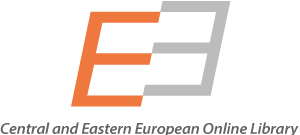PODRŠKA U DONOŠENJU ODLUKA ZA OSOBE S INTELEKTUALNIM TEŠKOĆAMA – KOJIM PUTEM NAPRIJED?
DOI:
https://doi.org/10.7251/FPNDP2405085RKljučne reči:
osobe s intelektualnim teškoćama, podržano donošenje odluka, augmentativna i alternativna komunikacija (AAC)Apstrakt
Osobe s intelektualnim teškoćama suočavaju se s brojnim problemima u raznim područjima života, a jedan od njih je praksa potpunog lišavanja poslovne sposobnosti. Na taj način, spriječeni su donositi odluke o vlastitom životu, poput izbora mjesta i osobe s kojom će živjeti, raspolaganja vlastitom imovinom i prihodima, te bivaju lišeni prava na rad, što može rezultirati institucionalizacijom u ustanovama socijalne zaštite i izolacijom od društva. Ova praksa je u suprotnosti s odredbama Konvencije UN-a o pravima osoba s invaliditetom (CRPD). Dodatni problem predstavlja činjenica da su neke osobe s intelektualnim teškoćama neverbalne ili minimalno verbalne te imaju poteškoće u pisanju, što postavlja dodatne izazove u ostvarivanju njihovih prava na poslovnu sposobnost. Cilj ovog rada je ispitati međunarodne instrumente koji reguliraju pravo na podržano donošenje odluka osoba s invaliditetom te primjere dobre prakse kako se ovo pravo uređuje i ostvaruje u odabranim evropskim zemljama. Nadalje, autori analiziraju akademsku literaturu vezanu za napredne tehnološke metode augmentativne i alternativne komunikacije (AAC) kako bi procijenili u kojoj mjeri one mogu doprinijeti poboljšanju komunikacije osoba s intelektualnim teškoćama. Autori zaključuju da napredne AAC tehnologije mogu pružiti put naprijed za podržano donošenje odluka, posebno za neverbalne ili minimalno verbalne osobe s intelektualnim teškoćama. Iako ne postoji garancija da će svaka osoba s intelektualnim teškoćama moći koristiti moderne AAC alate, autori vjeruju da bi svako trebao imati priliku isprobati i koristiti ih kako bi mogao “uzeti svoj život u svoje ruke”.
##submission.downloads##
Objavljeno
Broj časopisa
Sekcija
Licenca

Ovaj rad je pod Creative Commons Aуторство-Nekomercijalno-Bez prerade 4.0 Internacionalna licenca.





